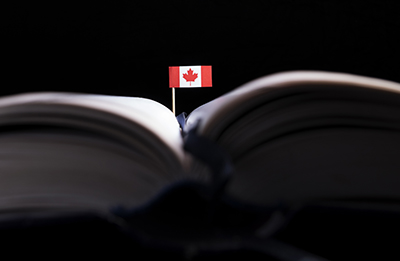 CBC’s Canada Reads debate is upon us again. I love listening to books being debated and the conversations that flood social media after each elimination. There is something wonderful seeing a love of literature flood social media. It may only last for a few days, but it is fantastic.
CBC’s Canada Reads debate is upon us again. I love listening to books being debated and the conversations that flood social media after each elimination. There is something wonderful seeing a love of literature flood social media. It may only last for a few days, but it is fantastic.
Not everyone agrees with the execution of Canada Reads, I have read comments from viewers that love the premise but the tactics have gone astray: voting for the best book first to increase its odds instead of voting on merit of the book. Some people disagree with the reasons a book was voted off, and often I read why people disagree with the winning book. Opinions on books are varied, as are opinions on the method of debate or strategies used during the debate, however, the result is people are talking about books, issues within the books, and problems with their presentation. And isn’t that the point of books? To stir conversations?
Canada Reads is a popular debate. It is televised, streamed live, available online after airing, and as a podcast. I prefer to watch live, or stream online after, because it is here I see the Q&A period after the official debate, and here is where the audience engages as they ask questions, where I have an opportunity to ask questions myself, via twitter, and where panellists have let their guard down and allow themselves to speak freely about why they chose the book they did. In one case, I found that had one panellist spoke about why the book meant so much to them earlier, then that book probably would have made it through the second round.
A comment I read recently about these debates is they have become too political. I find this idea, especially in this context, troubling. The theme of Canada Reads is “what book should every Canadian read, right now?” These books, while entertaining, are meant to affect Canadians. Books. Art. Everything is ultimately political: making a statement on society. These books raise questions and highlight issues?this is political. It would be impossible for the debates to exist free of politics.
Listening to these debates has emphasized that everyone is affected by different stories, different authors, and in different ways. I considered what they meant when they said that the debate has become too political. Is it that the issues being brought up are ones they don’t believe in? Are the issues too personal? Every story has a message, even the most lighthearted book can have a political edge. What is too political?
These debates bring many of the issues facing Canadians to light. We can see ourselves in the literature, in the debaters. We can witness people standing up for books they believe in and having a healthy discussion about disagreements within the context of novels.
To paraphrase something Jody Mitic said on day two of Canada reads, it is awesome that we live somewhere where we can debate books, and when we disagree with each other we are able to settle those disagreements with words, not weapons.
Deanna Roney is an AU student who loves adventure in life and literature. Follow her path on the writing journey at https://deannaroney.wordpress.com/

